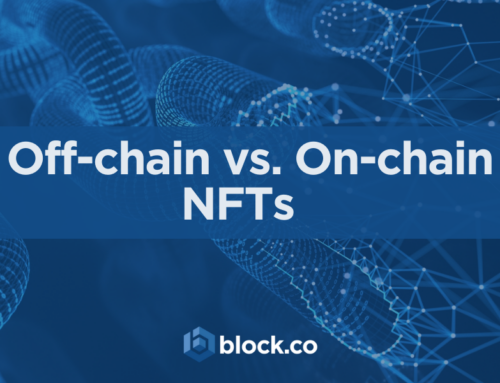Blockchain for the Insurance Industry

One of the main purposes of Blockchain technology is to help overcome the need for intermediaries in a trustless environment. It is therefore, natural to wonder how such a concept could apply to the service industry, which typically constitutes a third party that works on providing a solution to a customer. In this article, we will have a closer look at how Blockchain for the Insurance Industry may be used. In reality, just like many disruptive technologies, blockchain also reveals different facets, each resolving a variety of issues and each helping diverse areas of an organization.
While the need for intermediaries will not disappear any time soon, or at least until we live in a fully automated world, any business can benefit from innovative technologies to create a faster, more secure and smoother interaction between providers and their customers. This is exactly where the role of blockchain for the Insurance industry kicks in. In this blog post, we examine in particular how the technology can modernize Insurance, in which way it helps the sector save money, how it improves relations with customers, and tackle fraud plagues.
Insurance is a market highly affected by slow and long bureaucratic procedures. Dealing with claims processes, with damages caused by accidents, or fraud-related crimes can be overwhelming for both the company and the customer. Like in supply chains, blockchain technology can help unravel the inherent complexity of insurance, which involves a network of intricate relations between consumers, brokers, insurers, and reinsurers.
Improvements in speed and accuracy should be a must for an industry that could thrive with better customer experiences. For example, shortening the claims cycle through improved efficiency of faster and better access to data could lead to higher customer satisfaction and retention. Most insurance companies aim at settling any claim within 30 days, yet sometimes it takes as long as 3 months. Blockchain opens the way to digitalization and innovative automation in the industry, something that was long due. Where today insurance professionals need to manage a pile of paperwork and electronic documentation provided by claims auditors, lawyers, and insurance experts, blockchain may well be part of the solution generating significant operational savings for all parties.
According to a study by PWC, most major insurers are planning to integrate blockchain by 2021. This also translated into a surge in Distributed Ledger Technology investments as more and more insurers explore its full potential. According to one of their research reports, the global market for blockchain in insurance is expected to grow from $64.5 million in 2018 to $1.39 billion by 2023 — a compound annual growth rate of 84.9 percent.
Research by multinational services company Accenture, also points to massive adoption among insurance professionals. In one of their surveys, DLT was among the top technology trends in 2019 and 80 percent of insurers declared they have already implemented it across one or more of their business units, and are piloting or planning to pilot the technology. Furthermore, the analysis of two use case studies on personal auto insurance providers, identified between $99 million and $277 million in annual savings by the third year in the US alone.
With blockchain, data reconciliation is made easier, accuracy is improved, and time spent uncovering information is eliminated, allowing for transparency, efficiency, and cost reductions throughout a trustless chain. Working in a trustless environment is a remarkable addition overall, where trust can be delegated to the highly secure cryptographic ledger enabling insurers to collaborate more freely while focusing on other tasks.
Below are details of the real benefits that blockchain may bring to insurance organizations:
- Interoperability: Better security within a trustless environment can help solve the interoperability to allow the exchange of data between different entities;
- Fraud detection: Blockchain can help determine if fraudulent data is submitted through the insurance channels. By moving insurance claims onto an immutable ledger, blockchain technology can help eliminate common sources of fraud;
- More efficient payment system: A better relation between insurers and third parties is secured during the claims process thanks to a more cost-efficient system;
- Streamlined subrogation: Ease of debts collection or damage applications that previously involved complex and manual processes;
- More transparent claims process: A fully auditable and valid ledger of transactions;
- Client-centric process: Easier-to-access comprehensive records for peace of mind during the application process;
One interesting use case and example of advanced technology capable of maximizing customer satisfaction was the Ethereum blockchain-based platform Fizzy launched by AXA in 2017. Fizzy insurance would provide direct, automatic compensation to policyholders whose flights were delayed. By simply purchasing the service, a customer with a flight delayed more than two hours would receive an automatic reimbursement straight into their bank account within a matter of hours, thanks to a tracking system that connected the customer records to the flight data via the global air traffic control database. Despite the great efficiency and an extreme hassle-free service behind it, the experiment was withdrawn by AXA after only two years for a lack of interest in the travel industry. The project had great potential and despite its failure to raise much interest, it pioneered great efficiency within both the travel industry and insurance. At times, the price of innovation is failures along the way but if the concept is valid other players will pick it up and exploit it more successfully in the future, possibly in other fields too.
One area most insurers are exploring is blockchain to tackle the hassling and demanding fraud detection processes. According to the FBI, non-health insurance fraud in the US is estimated to be over $40 billion per year, which can cost families between $400–700 per year in extra premiums. Due to the vast complexity and visibility gaps in the insurance industry, fraudulent activities find here fertile grounds to exploit. When a network is intricate and extensive with different relations and scopes, more opportunities arise for criminals to perpetrate fraud, for example by making multiple claims across different insurers for a single loss. In such a case, blockchain can prevent fraudulent actors from collecting money from different insurers for the same claim. Collaboration between insurance companies is one of the major catalysts for fraud prevention and detection. It could be enhanced through the adoption of a shared and immutable blockchain-based ledger that could provide a way even for competitors to safely and securely share valuable data, contribute to the visibility of criminal patterns, and prevent future losses.
If all insurance affiliates use the same historical claims information, it would also be easier to identify suspicious behavior. Less fraud in insurance translates directly into higher margins for insurance companies, and consequently cheaper premiums for consumers. The main challenge insurers have to face is the hurdle of strict and complicated rules that regulate the sector, as well as the limits imposed by the usage of private information. Insurers currently use publicly available data and data acquired from private companies to detect fraud. However, due to legal constraints around sharing an individual’s identity information, the acquired information might be incomplete or not be serving a purpose. Blockchain, by cryptographically securing data, allows claims information to be shared across insurers without divulging personally identifiable data.
With a strong focus on fraud detection, Block.co can provide insurance policy certificates, claims certificates, cover notes, and other services through hassle-free self-verifying certificate solutions.
If your brand is ready to take the step into web 3.0 and NFT marketing, to optimize engagement with your audience in innovative ways, then click the button below to get your Free Trial, a limited number of Free NFTs, and a Free Consultation call from our team!
For more info, contact Block.co directly or email at enquiries@block.co.
Tel +357 70007828
Get the latest from Block.co, like and follow us on social media:







